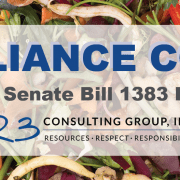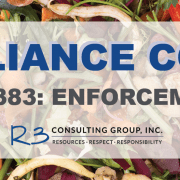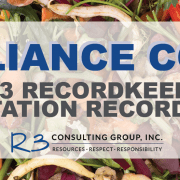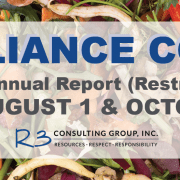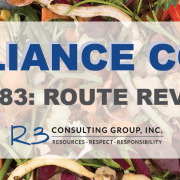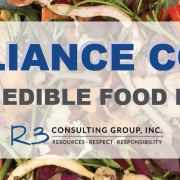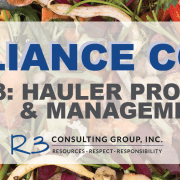Alameda – Food Recovery Strategic Planning Assistance
R3, with the assistance of Debra Kaufman Consulting, is currently engaged by the Alameda County Community Food Bank (ACCFB) to assist with the development of a Strategic Plan for its Food Recovery Program (FRP). The R3 Team’s objective is to develop a Strategic Plan to guide the FRP’s efforts over the next 3 to 4 years with a particular focus on SB 1383, and set appropriate performance targets for the program. We are performing the following main tasks for this engagement:
- Driving the strategic planning process;
- Facilitating and managing the project timeline and keep the project on track to its completion in collaboration with FRP Team members;
- Setting timeline goals for meetings;
- Establishing milestones and deliverables throughout the planning process, including engaging other stakeholders as agreed to with the FRP Team;
- Assisting in initiating a coordinated effort between the FRP and ACCFB and the Alameda County Waste Management Authority (ACWMA) and its Member Agencies;
- Preparing an Initial Draft of the Strategic Plan; and
- Revising and Finalizing the Final FRP Strategic Plan.
The Strategic Plan being developed will be focused on infrastructure, staffing structure, logistics, and projected growth. It is being designed to help the FRP effectively support:
- Increasing the number of meals that the ACCFB and its partner agencies distribute; and
- Improving the quality and desirability of those meals to ACCFB’s consumers.
As part of this project, the R3 Team is also working with the Alameda County Waste Management Authority (ACWMA) and its Member Agencies to assist in implementing a coordinated Countywide SB 1383 food recovery effort.
Significant issues impacting the FRP and ACCFB that the R3 Team is considering as part of the strategic planning process include:
- Transportation and Logistics: The main challenge is to develop the logistics and providing sustainable funding for the necessary food collection and distribution system that also addresses the volatility in the availability and need for food on any given day;
- Smaller Quantities = Increased Unit Costs: As larger donors are secured, securing food from smaller quantity generators will become more prevalent, with reduced economies of scale and higher per pound food recovery costs;
- Public Education and Outreach: There is a constant need to reeducate donors due to high rates of employee turnover at the businesses donating food;
- Storage Space and limited Additional Facility Capacity: The need for increased facility capacity for the ACCFB and its partner agencies, as well as increased refrigerated and non-refrigerated storage, must be addressed;
- Students and Homeless: Homelessness within the ACCFB’s service area has increased 30-40% in the past 2 years, and in Oakland 75% of students qualify for free or reduced-price lunches; and
- Patchwork System: There is an opportunity to replace the current patchwork food recovery system with a more efficient, effective and coordinated, Countywide SB 1383 food recovery effort.



